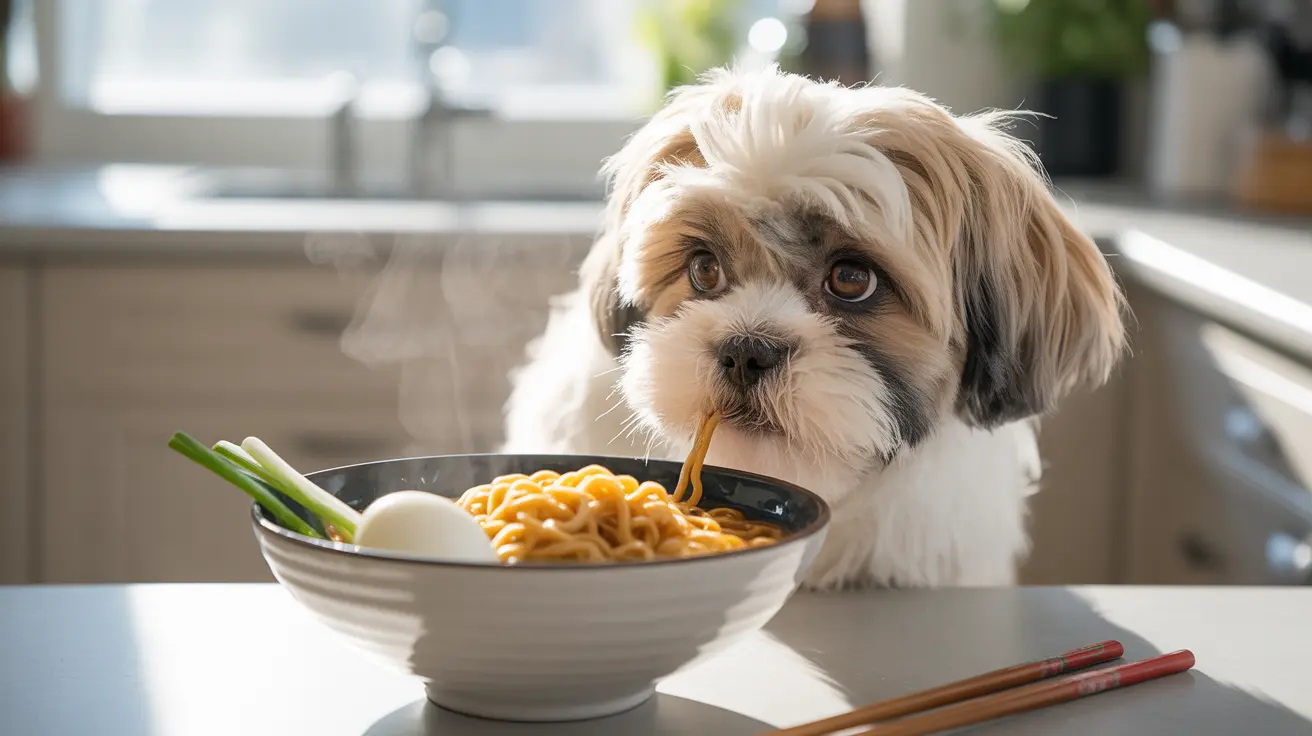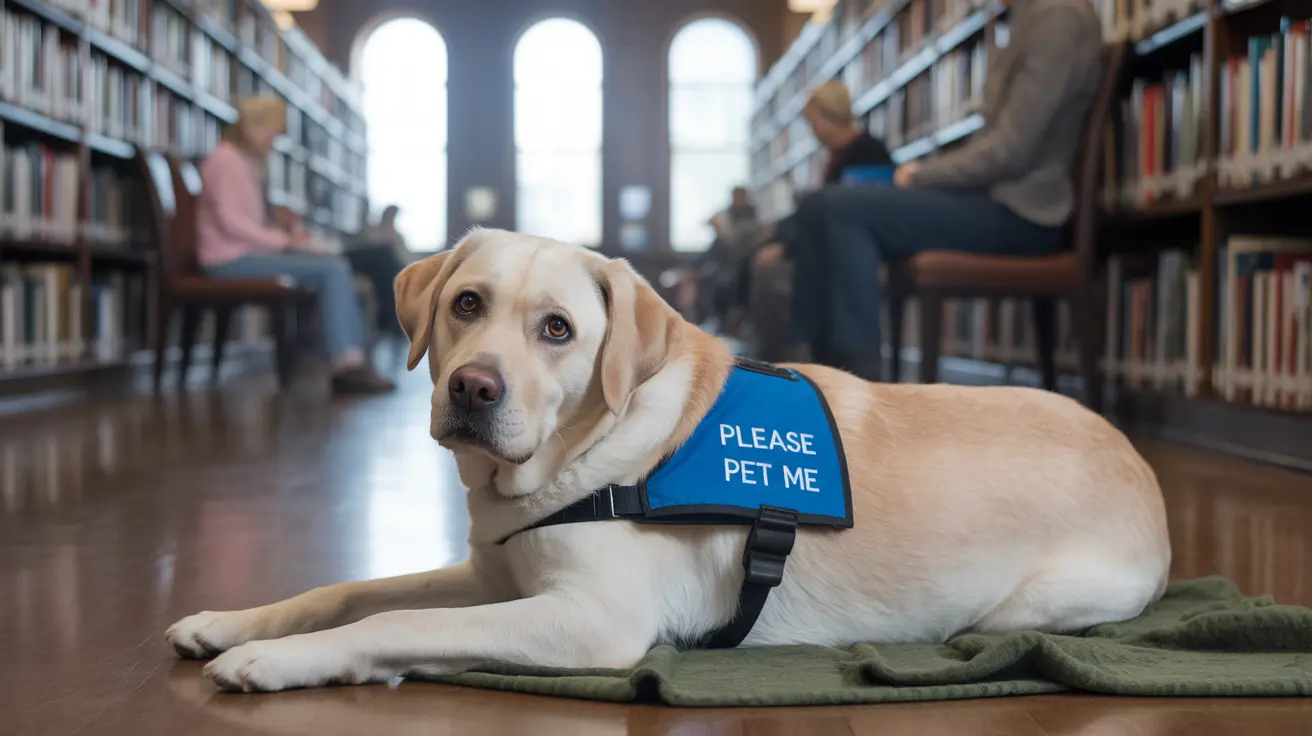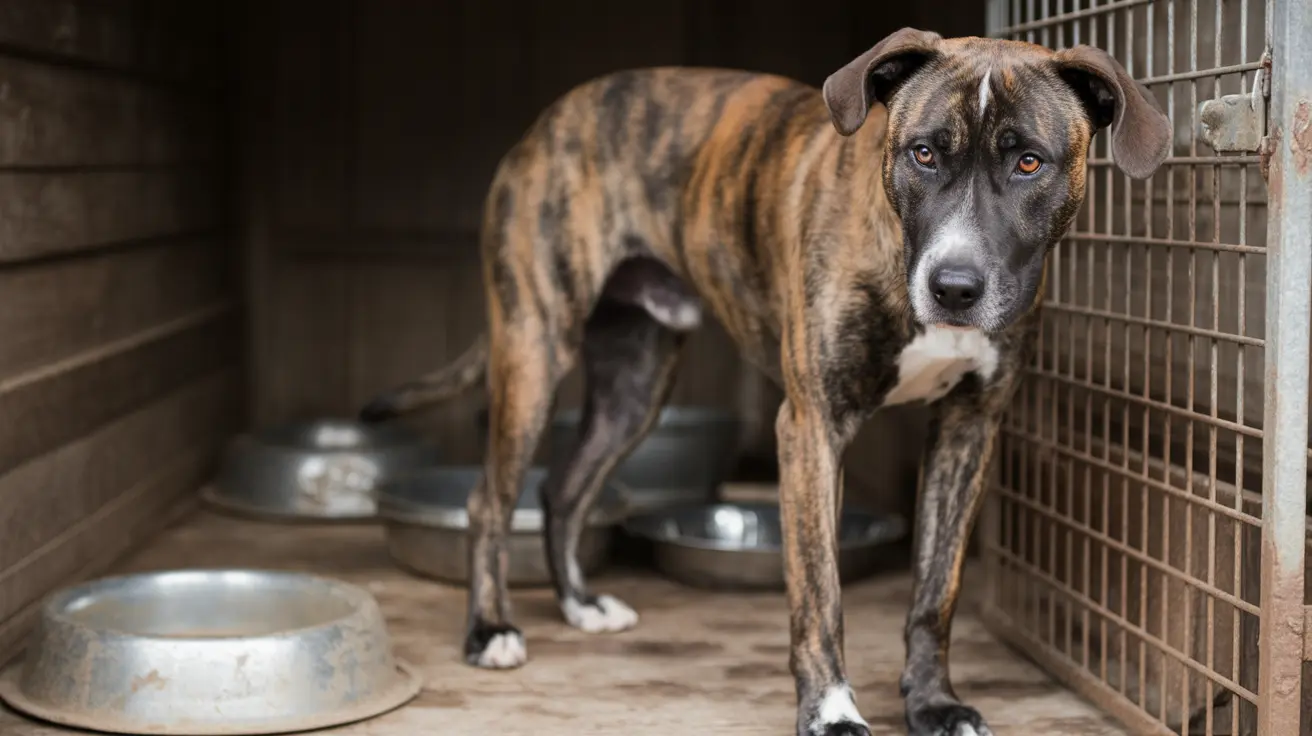Understanding the Dangers of Ramen for Dogs
As a pet owner, you might wonder if sharing your favorite quick meal with your furry friend is safe. While dogs may show interest in ramen noodles, veterinary experts strongly advise against feeding them to your canine companion. Let's explore why these popular instant noodles could pose serious health risks to your dog.
The concerns go far beyond the noodles themselves - it's the combination of high sodium content, harmful seasonings, and artificial additives that make ramen particularly dangerous for dogs. Understanding these risks is crucial for maintaining your pet's health and safety.
The Primary Health Risks
Dangerous Sodium Levels
The most immediate concern with ramen noodles is their extremely high sodium content. Dogs only need a minimal amount of sodium in their diet, and a single serving of ramen can contain more than 1,600mg - far exceeding their daily requirement. This excessive sodium intake can lead to:
- Severe dehydration
- High blood pressure
- Salt poisoning (hypernatremia)
- Cardiovascular problems
- Kidney strain
Toxic Seasonings and Additives
The seasoning packets that come with ramen noodles often contain ingredients that are toxic to dogs, including:
- Garlic powder
- Onion powder
- MSG (monosodium glutamate)
- Artificial preservatives (BHA/BHT)
These ingredients can cause serious health issues, including potentially life-threatening anemia from damaged red blood cells.
What Happens If Your Dog Eats Ramen?
If your dog consumes ramen noodles, they might experience various symptoms depending on the amount eaten and whether the seasoning was included. Watch for:
- Excessive thirst and urination
- Vomiting and diarrhea
- Lethargy or restlessness
- Muscle tremors
- Incoordination
- Seizures in severe cases
Safe Alternatives to Ramen for Dogs
Instead of ramen, consider these dog-friendly alternatives when you want to give your pet a special treat:
- Plain, cooked pasta (without sauce or seasoning)
- Plain, cooked rice
- Commercial dog treats
- Small pieces of lean, unseasoned meat
- Dog-safe vegetables
Frequently Asked Questions
Can dogs safely eat plain ramen noodles without the seasoning?
While plain ramen noodles aren't toxic, they offer no nutritional value for dogs and still contain more sodium than recommended. It's best to avoid them entirely.
What are the health risks if my dog eats instant ramen with the seasoning packet?
Instant ramen with seasoning can cause severe sodium poisoning, toxic reactions from garlic and onion powders, and potential kidney problems. Immediate veterinary attention may be needed.
What symptoms should I watch for if my dog accidentally eats ramen noodles?
Monitor for excessive thirst, vomiting, diarrhea, lethargy, tremors, and unusual behavior. Contact your veterinarian if these symptoms appear.
Are there any safe noodle alternatives I can share with my dog instead of ramen?
Plain, cooked pasta without seasonings can be given in moderation. However, it's better to stick with commercial dog treats or vet-approved human foods.
How much sodium from ramen can be harmful to my dog's health?
Even a small amount of ramen can exceed a dog's daily sodium needs. Dogs should consume no more than 15mg of sodium per kilogram of body weight daily.
Conclusion
While ramen noodles might be a convenient meal for humans, they pose significant health risks to dogs. The combination of excessive sodium, toxic seasonings, and artificial additives makes them unsuitable and potentially dangerous for canine consumption. Instead, stick to dog-specific treats or vet-approved alternatives to keep your furry friend safe and healthy.






